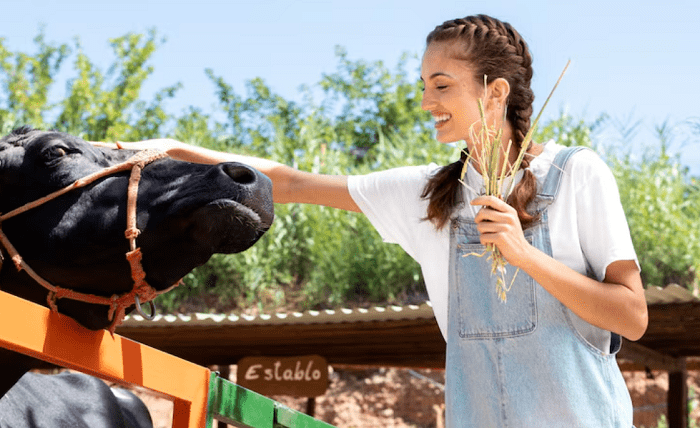Proper nutrition is the foundation of a healthy, happy horse. Whether you’re caring for a young foal, a performance horse, or a senior companion, selecting the right horse food is critical to meet their unique dietary needs. Horses require a balance of energy, protein, vitamins, and minerals, and these requirements can vary depending on their age, breed, activity level, and health status. Understanding these factors ensures your horse thrives throughout its life.
Understanding the Basics of Horse Nutrition
Horses are herbivores with a digestive system designed primarily for foraging on fibrous plants. Their diet should be high in fiber and include:
- Forage: The majority of a horse’s diet should come from hay or pasture, which provides essential fiber for healthy digestion.
- Concentrates: Grains and commercial horse feeds can supplement energy and nutrients, especially for high-performance or underweight horses.
- Supplements: Depending on age and health, vitamins, minerals, or joint supplements may be necessary.
Choosing the right horse food begins with understanding these core nutritional components and how they fit into your horse’s life stage and workload.
Nutritional Needs by Age
Foals and Young Horses
Young horses are in a rapid growth phase and require high-quality horse food rich in protein, calcium, and phosphorus to support bone and muscle development. Foals may start with a milk-based diet, gradually transitioning to concentrates and high-quality forage as they grow. Specialized growth feeds are often recommended to ensure balanced nutrition.
Adult Horses
Adult horses have more stable nutritional requirements, which vary based on their activity level. Leisure horses may thrive on forage alone, while performance horses or working breeds need additional energy from grains or commercial feed blends. A balanced horse food for adults should maintain weight, support muscle tone, and promote overall health without causing excess energy or digestive issues.
Senior Horses
Older horses often experience dental issues and decreased digestive efficiency, making it important to choose easily digestible horse food. Senior feeds are typically formulated with higher fiber, lower starch, and added vitamins and minerals to support aging joints and organ function. Soaking or pelleting feed can help seniors consume nutrients more easily.
Breed Considerations
Different breeds may have specific dietary needs:
- Light breeds (like Arabians or Thoroughbreds) are often more active and require energy-dense feeds.
- Draft breeds have slower metabolisms and are prone to obesity, so their diet should be carefully balanced with forage and limited concentrates.
- Ponies also have a tendency toward weight gain, making low-sugar, high-fiber feeds ideal.
Selecting the right horse food involves considering your horse’s breed tendencies alongside their workload and age.
Tips for Choosing Quality Horse Food
- Read Labels Carefully: Look for feeds that list primary ingredients and provide nutrient analysis.
- Consult a Veterinarian or Nutritionist: Professionals can recommend specific feeds tailored to your horse’s age, breed, and health condition.
- Introduce Feed Gradually: Sudden changes can disrupt digestion and lead to colic or other gastrointestinal issues.
- Monitor Your Horse: Regularly check weight, coat condition, and energy levels to ensure the feed is meeting their needs.
- Consider Forage First: Forage should remain the foundation of any diet, with concentrates and supplements as additions rather than replacements.
Conclusion
Choosing the right horse food is more than just picking a bag off the shelf; it’s about understanding your horse’s nutritional needs throughout their life. By considering age, breed, and activity level, and by consulting professionals when needed, you can ensure your horse receives a balanced diet that supports health, performance, and longevity. With the right nutrition, your equine companion can thrive and enjoy a happy, energetic life.

